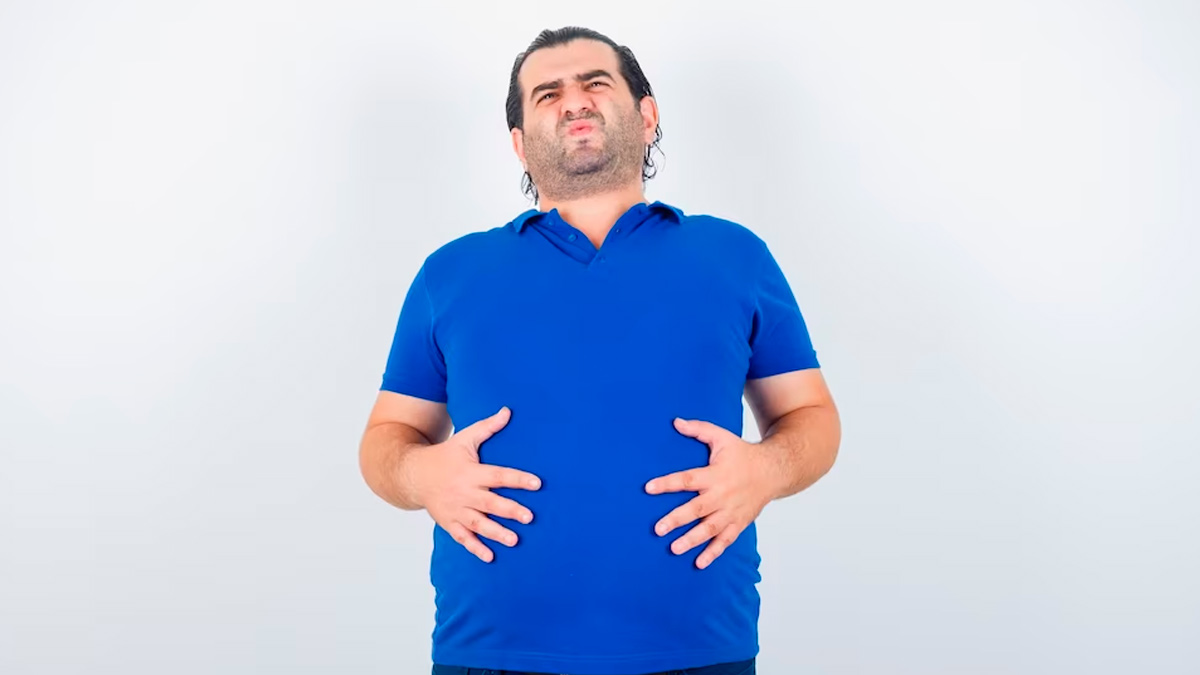
A feeling of fullness, abdominal pain, and swelling may not be a matter of concern. These are all characteristics of bloating, which can be treated with over-the-counter medications and home remedies. However, according to Dr Tuhin Mitra, Gastroenterology, Fortis Hospital-Anandapur, Kolkata, if the bloating is recurrent or persistent, it could signal an underlying health problem. In an interaction with the OnlyMyHealth team, Dr Mitra discusses the difference between a normal bloating episode and a concerning one.
Also Read: 9 Of Family Members Undergo Weight Loss Surgery In 7 Years: Their Surgeon Reveals The Primary Cause
What Does Bloating Feel Like

“Bloating is the feeling of fullness in the tummy when it is excessively stretched making it feel tight and full of pressure,” Dr Mitra explained, adding that it can be uncomfortable and painful at times.
According to him, bloating is mostly caused by digestive irregularities, which cause excess intestinal gas. Sometimes, stress and hormonal issues may also contribute to it.
Common Causes Of Bloating

The causes of bloating ranges from very simple to complex problems in the body. “Generally, between 10% and 25% of otherwise healthy people complain of occasional abdominal bloating among whom about 75% describe their symptoms as moderate to severe. About 10% say they experience it regularly. Among those diagnosed with Irritable Bowel Syndrome (IBS), it may be as much as 90%,” Dr Mitra highlights.
Other common causes include:
- Eating too fast
- Food intolerance that forms excessive gas called gastrointestinal disease
- Build-up of digestive contents (solid, liquid or gas) along the digestive tract due to constipation or sudden weight gain.
According to Dr Mitra, most women experience the bloating tendency before or during their menstrual cycle. “Up to 75% of women experience bloating before and during their period,” he notes, adding, “Bloating is also a common complaint during the hormone fluctuations of perimenopause.”
Medical News Today says bloating before and during menstruation may result from changes in levels of the sex hormones progesterone and oestrogen. Research suggests changes in the hormone levels cause the body to retain more water and salt, leading to a feeling of bloating.
Also Read: Excess Sugar Can Cause Headaches: Why It Happens
Signs Your Bloating Is Serious

The problem of bloating goes away quickly, however, if it persists for more than 2 weeks, it could be due to underlying conditions such as:
Ascites: Gradual build-up of fluids in the abdominal cavity due to liver disease, kidney or heart failure
Pancreatic insufficiency: When pancreas fails to produce enough digestive enzymes
Gastritis and enteritis: Happens due to bacterial infection and too much intake of alcohol
Cancer: Mainly during ovarian, uterine, colon, pancreatic and stomach cancer
Common symptoms of serious bloating include:
- Blood in stool
- Vaginal bleeding (between your periods, or if you are postmenopausal)
- Nausea and vomiting
- Diarrhoea
- Heartburn that gets worse
- Unexplained weight loss (without trying)
- Fever
How To Get Rid Of Normal Bloating
Here are some remedies to treat bloating at home:
- Drink plenty of water
- Indulge in light physical exercise
- Sip on herbal tea
- Antacids, as prescribed by the doctor
- Probiotics
Conclusion
Bloating is harmless, unless it persists for long periods of time and does not subside with natural remedies. Ensure that you visit a gastroenterologist or a healthcare provider, who can conduct a proper evaluation and provide timely treatment.







